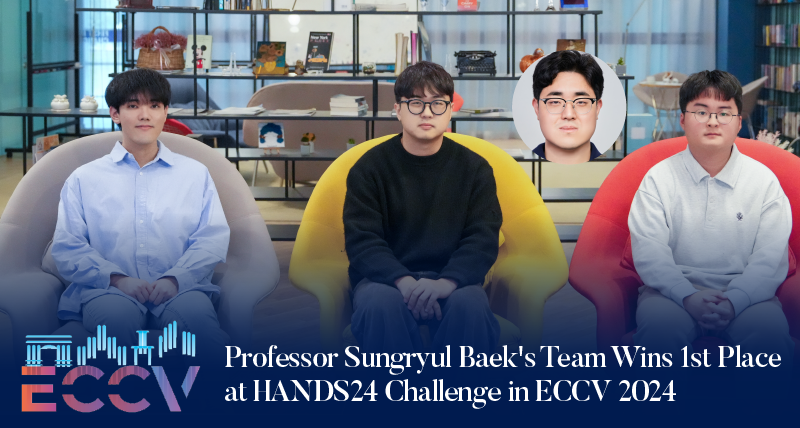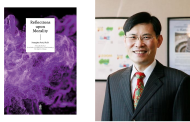A research team, led by Professor Seungryul Baek at the Graduate School of Artificial Intelligence, UNIST, has achieved remarkable success in the HANDS workshop challenge, held in conjunction with the 2024 European Conference on Computer Vision (ECCV). Their work, which leverages advanced artificial intelligence imaging technology, successfully reduces distortion in 3D hand and object reconstruction.
Taking place on October 30, the competition comprised four categories, with Professor Baek’s team securing the top position in the ARCTIC track. In this challenge, the team utilized their method for reconstructing hand and object meshes using the ‘3D Gaussian Splatting (3DGS),’ which led them to win first place in the 8th HANDS Workshop Challenge at ECCV 2024.
The ARCTIC track focuses on evaluating the accuracy of computer vision models that reconstruct 3D meshes from videos depicting the movements of both hands and objects. This task is particularly challenging as it requires reconstructing the mesh using only third-person camera data, without employing pre-scanned 3D template information. A mesh represents detailed reconstructed information about an object in polyhedral form.
Professor Baek’s team, which included members Jongwan On, Kyeonghwan Gwak, Gunyoung Kang, Hyin Hwang, Soohyun Hwang, Junuk Cha, and Jaewook Han, achieved the award by introducing a groundbreaking 3D reconstruction technique that minimizes distortion in the reconstruction of hands and objects, particularly from lateral viewpoints. By implementing the latest in 3D Gaussian Splatting (3DGS) technology, they effectively reduced the distance error between the hand and the object by approximately threefold (from 70 cm).
Professor Baek remarked, “In real life, human hands are continually interacting with objects, making it crucial to achieve accurate 3D reconstruction. This advancement will significantly contribute to the creation of immersive virtual reality and metaverse experiences.”






![[2026 UNIST Matriculation] “Design Questions the World Has Never Seen!”](https://news.unist.ac.kr/wp-content/uploads/2026/02/사진-박종래-UNIST-총장이-2026년-입학식사를-전하고-있다-1-1-190x122.jpg)
![[2026 UNIST Commencement] “Become Way Makers Who Open Paths Where None Are Drawn!”](https://news.unist.ac.kr/wp-content/uploads/2026/02/사진-박종래-총장이-UNIST-학위수여식사를-전하고-있다-3-1-190x122.jpg)
![[2026 UNIST Commencement] Voices of Class of 2026](https://news.unist.ac.kr/wp-content/uploads/2026/02/Untitled1-190x122.jpg)



